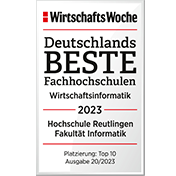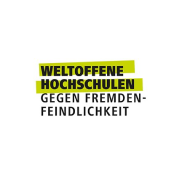

Agile Software & System Development
The Agile Software & System Development research group focusses on methods, techniques and tools for the development of software-intensive systems. Areas of application for the research results include innovative projects in the software start-up environment as well as the development of critical applications in the automotive and aerospace domains. Other topics include the use of AI techniques to support the software development process (KI4SE) and the development of AI-related systems (SE4KI).
Main research areas
Design, development and innovation of AI-based software products
Empirical software engineering with a focus on data-driven process analysis, development and improvement
Books:
Manfred Broy, Marco Kuhrmann. Einführung in die Softwaretechnik. Xpert.press, Springer 2021
Manfred Broy, Marco Kuhrmann. Projektorganisation und Management im Software Engineering. Xpert.press, Springer 2013
Journal- und Konferenzbeiträge
Teaching includes basic and advanced courses in Informatics and software engineering, such as:
- Fundamentals of computer science
- Software architecture
- Empirical Methods for Software Engineering
- Software Process Engineering
- Agile Project Management & Software Development
The research group co-operates with many research institutions and networks, in particular:
- Clausthal University of Technology, Germany
- University of Passau, Germany
- Leibniz University of Hanover, Germany
- ITU Koppenhagen, Denmark
- Chalmers University, Sweden
The research group has a large number of co-operation partners in business practice. In the last two years, co-operation with the following companies has been of particular importance:
- German Aerospace Centre, Germany
- Volkswagen AG, Germany
- ITZ Bund, Germany
- Methodpark/UL, Germany
2019: ACM SIGSOFT Distinguished Paper Award ICSSP 2019 - International Conference on Software and Systems Process (ICSSP’2019)
2018: ACM SIGSOFT Distinguished Paper Award ICGSE 2018 - 13th International Conference on Global Software Engineering (ICGSE’2018)
2018: Technical Research Best Paper: 10th Software Quality Days (SWQD’2018)
2017: Best Industry Paper Award: 21st Evaluation and Assessment in Software Engineering Conference (EASE’2017)
2014: Best Paper Award (Excellence in Engineering Education): IEEE Global Engineering Education Conference (EDUCON’2014)
2012: Ernst Otto Fischer Lehrpreis, Fakultät für Informatik der TU München
![[Translate to English:] [Translate to English:]](/fileadmin/_processed_/1/2/csm_Kuhrmann_a07b1ee322.jpg)






